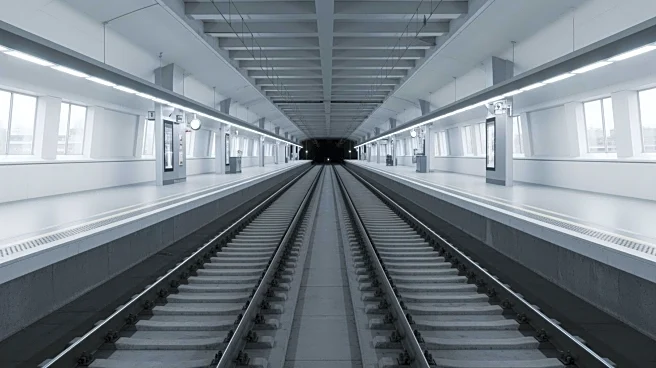What's Happening?
The Metropolitan Transportation Authority (MTA) and Amtrak are embroiled in a dispute over delays in the $2.9 billion Penn Station Access project, which aims to connect Bronx riders to Manhattan's Penn Station via
four new Metro-North stops. The MTA has accused Amtrak of causing a potential three-year delay due to insufficient track access and staffing. Amtrak President Roger Harris attributes the delays to a long-standing rivalry and shared responsibility between the two organizations. An independent report commissioned by the MTA, conducted by consultant Melissa Morea, blames Amtrak for not providing the necessary resources. However, Amtrak disputes the report's findings, noting that Morea did not consult them during her investigation.
Why It's Important?
The delay in the Penn Station Access project has significant implications for Bronx residents who rely on improved transit connections for access to jobs and education. The project is crucial for enhancing regional connectivity and economic opportunities. The ongoing dispute highlights the challenges of inter-agency collaboration on large infrastructure projects, which can lead to public frustration and political tension. The involvement of nine Democratic members of Congress, who have urged Amtrak to expedite the project, underscores the political stakes and the pressure on both agencies to resolve their differences and deliver on public commitments.
What's Next?
The MTA and Amtrak are expected to enter arbitration to resolve their differences. MTA head Janno Lieber has committed to providing Bronx residents with service by 2027, potentially using temporary platforms or shuttle arrangements. The outcome of the arbitration and the agencies' ability to cooperate will determine the project's timeline and success. Stakeholders, including local politicians and community leaders, will likely continue to advocate for timely completion to meet the needs of Bronx residents.
Beyond the Headlines
The dispute between Amtrak and the MTA reflects broader issues in public infrastructure projects, such as the need for effective inter-agency communication and accountability. The situation also raises questions about the role of independent consultants and the potential for conflicts of interest, given Morea's previous work with MTA leadership. The resolution of this conflict could set a precedent for future collaborations between federal and state transportation agencies.








